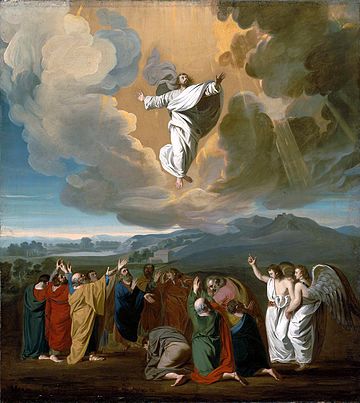
Like Donald Trump and Vladimir Putin in our time, Jewish religious leaders in first century Israel were prepared to say and do whatever was necessary to retain power. When Jesus unexpectedly emerged on the scene in his 30th year, they immediately understood his teachings would undermine their hold on the people. According to the Biblical account, crowds were flocking to him from Galilee, the Decapolis, Jerusalem, Judea and regions beyond the Jordan. The religious leaders found it galling that he claimed to be the Son of God, and did not deny he was the Messiah whose coming had been foretold centuries earlier by the prophets Jeremiah and Ezekiel. They deemed him to be a mere mortal and resolved to take him down.
The undisputed ruler of the far flung Roman empire at this time was Tiberius, adopted son of the deceased Caesar Augustus. Augustus had crushed virtually all opposition by forming alliances, assassinating or banishing rivals, defeating enemies in military campaigns, and at times killing erstwhile partners. It was a harsh regime in which beheadings and crucifixions were common.
Within this context, Jewish life and political power largely revolved around the temple, located in Jerusalem, and local synagogues. Two main religious parties, the Sadducees and Pharisees, wielded immense influence. In large part their power derived from the ability to ban people from the temple and synagogues. According to Jewish historian, Flavius Josephus, the Sadducees were a sophisticated, aristocratic party. They controlled the office of the High Priest during Jesus time and held most of the seats in the governing Sanhedrin. The Pharisees tended to be scribes and strict teachers of the law.
Jesus had 12 disciples, but no party or position. Unlike the religious leaders who controlled the people with myriad petty rules about daily life, Jesus offered a message of hope. “In my father’s house are many mansions,” he told the crowds. “If I go to prepare a place for you, I will come again and receive you to myself, so that where I am, there you may be also.” People decided he was genuine and that he spoke with authority. Although they didn’t openly approve of him because they feared the religious leaders, privately many wondered if he might be the promised Messiah.
The religious leaders could have entered into a real dialogue with Jesus to determine if he might indeed be the Messiah. Certainly his miracles could not be ignored. They dared not do this though, because if he turned out to be authentic they would have to undergo a huge paradigm shift and would lose their elevated positions.
The Pharisees partnered with the Herodians, a secular party that supported the despised Roman rulers. They were definitely not natural allies but they approached Jesus and asked, “Is it lawful to pay taxes to Caesar?” If he answered “no” they would report him to Governor Pilate, who would have him executed for treason. If he said “yes” they would denounce him to the people.
Jesus asked them to show him a coin, so they produced a denarius. On one side was the depiction of Caesar Tiberius. “Whose image is on the coin?” he asked. “Caesar’s” they replied. Jesus then said, “give to Caesar what is Caesar’s and to God what is God’s.”
When Jesus brought Lazarus back to life, the religious rulers were spooked. Fearing they would lose all authority and credibility with the people, they had Jesus arrested at night in the garden of Gethsemane. In an early morning trial of the Sanhedrin, they found him guilty of blasphemy because he claimed to be the Son of God.
Before Pilate, Governor of Judea however, they accused Jesus of treason saying, “We have found this man subverting our nation. He opposes payment of taxes to Caesar, and claims to be Christ, a King.”
Pilate asked questions, considered the matter, then said, “After examining him, I conclude he has done nothing to deserve death.” Even so, bowing to pressure from the religious leaders and their supporters, Pilate ordered Jesus be crucified.
In his account Matthew, a former tax collector and disciple of Jesus, noted that a large stone was rolled in front of the tomb. Three days later an angel removed the stone. When Jesus followers came to the tomb, the angel said, “He is not here. He is risen.” Around the globe this Easter Sunday, Christians will greet each other with the words, “He is risen!”

One thought on “The Politics Of Easter”